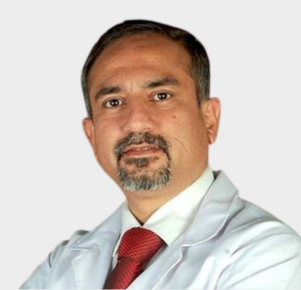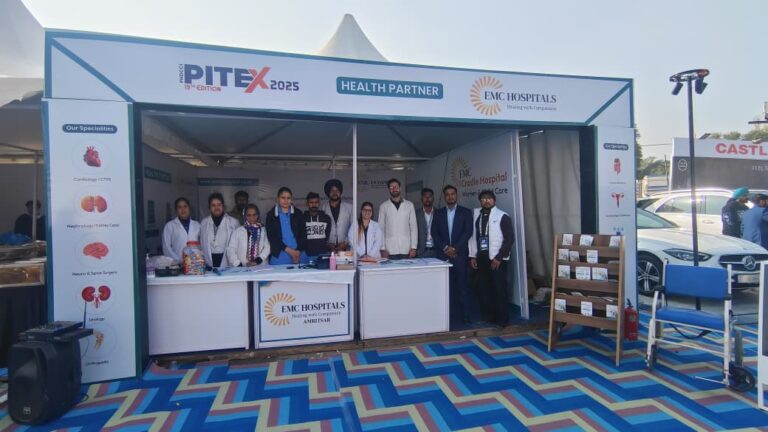PUNJ HOSPITAL (A Unit of EMC Hospitals): Dr. Rajan Punj Shares Expert Insights on Hiatal Hernia – Causes, Types, Symptoms, and Treatment
Amritsar, August 7, 2025 – Dr. Punj Hospital, a renowned unit of EMC Hospitals in Amritsar, recently held an informative session where esteemed gastroenterologist Dr. Rajan Punj shared expert insights on Hiatal Hernia, a condition often misunderstood as simple acidity or gas due to lack of awareness.


Dr. Punj explained that a hiatal hernia occurs when the upper part of the stomach pushes through an opening in the diaphragm into the chest cavity. Because symptoms are often mistaken for common digestive issues, many patients ignore the condition until it worsens.
According to Dr. Punj, there are two primary types of hiatal hernia:
- Sliding Hernia, the most common form, in which the stomach and lower esophagus slide up through the diaphragm into the chest.
- Paraesophageal Hernia, though less common, is potentially more serious. In this case, part of the stomach pushes into the chest beside the esophagus and may lead to complications if untreated.
Discussing the symptoms, Dr. Punj noted that patients often experience heartburn, bloating, difficulty swallowing, sour belching, and occasionally chest pain. In some cases, the condition may be asymptomatic (silent), delaying diagnosis and treatment.
On treatment options, Dr. Rajan Punj emphasized that mild cases can be managed through lifestyle changes, dietary modifications, and medications. However, for severe or complicated cases, laparoscopic surgery may be required. This modern technique is minimally invasive and allows for faster recovery with smaller incisions.
Dr. Punj Hospital in Amritsar offers state-of-the-art facilities for the diagnosis and treatment of various gastrointestinal disorders. The hospital is equipped to provide accurate testing, expert consultation, and safe, effective care tailored to each patient’s condition.




